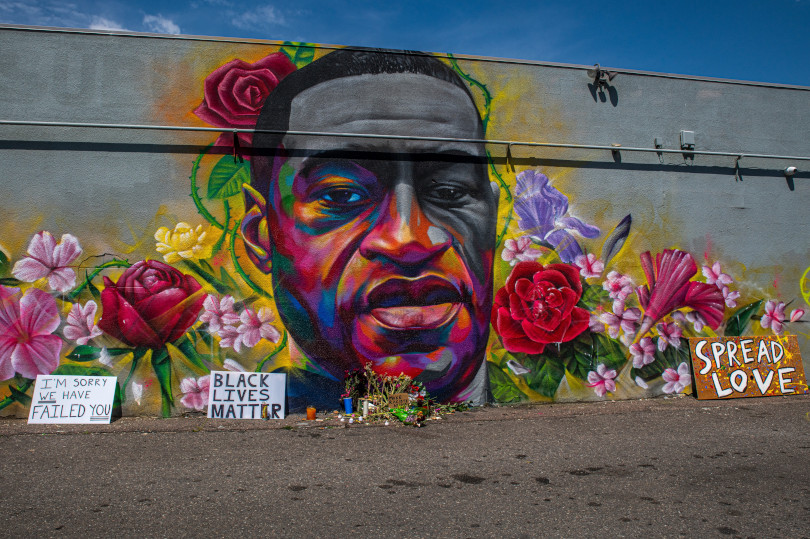The history of the meaning of the adjective “woke†is a rather unique one. In the United States, there are few words that are comparably divisive. What all major English dictionaries and most English speakers once agreed meant “alert to injustice†is now up for interminable partisan debate.
Largely, Americans who are left of center remain faithful to this original definition. To be woke is to be aware of disparity and prejudice of all forms at home and abroad. It can also mean being committed to eliminating those ills through political and social action. In other words, woke is a good thing to be. Just as largely, Americans who are right of center see things very differently. To them, to be woke is to be delusional, to be more concerned with political correctness and virtue signaling than individual freedoms and practical, actionable solutions. Wokeness is just as un-American as it is unrealistic. In other words, woke is a bad thing to be.
Woke Mind Virus
English dictionaries, being that they strive to adapt in lockstep with common parlance, now carry both definitions so as to accommodate all English speakers’ stances. For example, Merriam-Webster defines the liberal woke as such: “aware of and actively attentive to important societal facts and issues (especially issues of racial and social justice).†On the other hand, the conservative woke means “politically liberal (as in matters of racial and social justice) especially in a way that is considered unreasonable or extreme.â€
In the same way that those who subscribe to the latter definition believe Americans are suffering from what Elon Musk and Bill Maher called the “woke mind virus,†which is allegedly transforming patriots into sycophantic, un-American traitors, they also believe corporations are following the same path. While we may not all be able to agree on the motives and effects of what its detractors call “woke capitalism,†its existence can hardly be denied.
Following the protests after the murder of George Floyd in 2020, countless businesses did their best to disassociate themselves from any insensitive language and imagery that they espoused. The Washington Redskins temporarily became the generic Washington Football Team before landing on their current name iteration, the Washington Commanders. The Cleveland Indians stepped away from their name and caricaturesque mascot Chief Wahoo by becoming the Cleveland Guardians. Just this week, a minor league affiliate of the Atlanta Braves announced that they would be leaving their name, also the Braves, in the past, though it isn’t entirely clear whether this decision had anything to do with the club’s Native American-inspired iconography.
Business Decisions
The Aunt Jemima brand became the Pearl Milling Company brand, and the associated illustration of Aunt Jemima disappeared from the brand’s products. Uncle Ben’s became Ben’s Original, and the Ben’s smiling black face followed Jemima’s footsteps and took a

hike. High schools, dormitories, and even a university changed their names to avoid harkening back to America’s racist past—and reinforcing its racist present.
While the American right is largely content to accuse anything signifying progress in the realms of race relations, sensitivity, or inclusion of being un-American, unnecessary, and unserious, the sincerity of American corporations could stand to be called into question regardless of the questioner’s political leanings. To begin, what does it say about these corporations that it took them until the widely tweeted and televised police murder of George Floyd to examine their own ethics? Does that seem like the behavior of people invested in progress, or rather people invested in profit? Is moving toward “the right side of history†a choice based in virtue or simply a good business decision?
Whatever the true answers to these queries are, whether George Floyd’s death gifted sight to formerly blind eyes or it simply threatened capitalist interests, the actions taken by businesses to advance racial progress were decidedly limp. A name or branding change does not solve, or really even begin to solve, the millennia-old sin of racial prejudice. Big business is hardly putting its money where its mouth is. Just as members of antiracist book clubs who loudly profess their love of White Fragility are rarely found at protests, in the emails of local representatives, or donating to black-led nonprofit organizations, the American business world is mostly bark with little bite. There has been money committed and conversations started, but we haven’t moved very far from where we started, and there are certainly enough funds and resources floating around to take us further along.
Pay Up
It’s said that talk is cheap. Unfortunately, so are multi-billion dollar corporations. A word to the wise (but mostly wealthy): Pay up. Most of your wealth is generated from capitalist exploitation that expands the racial wealth gap while securing social and economic privilege for a numerically inferior upper class of white elites. When you do deign to split some of your ill-gotten lucre with us little—although numerically superior—guys, it often comes in small quantities or with restrictive caveats. One must assume that if the average person was aware of how little your ostentatious claims actually amounted to, you would do more to synchronize them with reality to retain as much profit as possible. Take the step to skip the middleman, the fear of economic repercussions. Live by your word and invest in communities, not capital.
Article photo by mana5280 on Unsplash.


